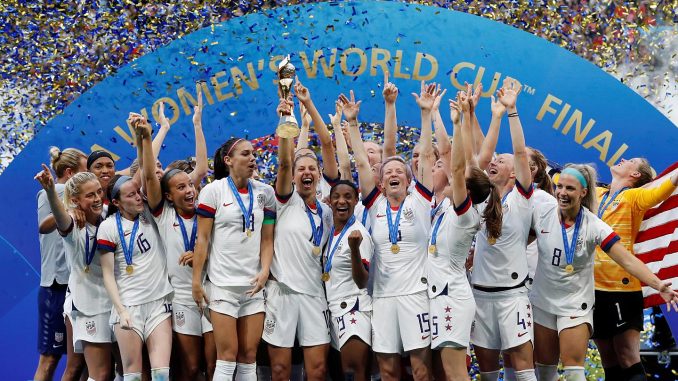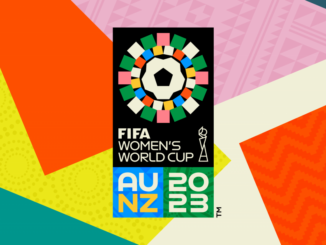
On Monday morning, the German Football Association (DFB) announced that it will be bidding to host the 2027 FIFA Women’s World Cup together with its Belgian and Dutch counterparts. The DFB previously hosted the event solo in 2011, where the German team was knocked out in the quarter-finals by eventual champions Japan. This Belgian-Dutch-German joint bid is the first to be announced for the 2027 event. If successful, it would become only the second-ever FIFA tournament of any kind (and the first-ever Women’s World Cup) to have three co-hosts.
ᴛʜʀᴇᴇ ɴᴀᴛɪᴏɴꜱ. ᴏɴᴇ ɢᴏᴀʟ.
🇩🇪🇳🇱🇧🇪
Let’s do this. Together 🔥#FWWC27@DFB @OnsOranje @RoyalBelgianFA pic.twitter.com/Bla23Ngdh8— DFB-Frauenfußball (@DFB_Frauen) October 19, 2020
It is no secret that hosting large, international sporting events had increasingly become a losing proposition even before the current pandemic. Recent World Cups in South Africa and Brazil, for example, left behind empty stadiums and huge public debts. FIFA’s decisions to award its flagship event to hosts with questionable political and human rights records (such as Russia and Qatar) also drew fierce criticism from international observers.
In spite of its dismal track record and the usual politicking, FIFA’s two most recent major bidding processes (for the 2026 Men’s World Cup and the 2023 Women’s World Cup) showed some encouraging signs, with winning bids coming from co-hosts with sufficient existing physical and commercial infrastructures to share the financial burden. Not coincidentally, however, this encouraging trend also favored developed countries, with Morocco and Colombia respectively losing out.
Although details are still scarce, the DFB’s joint bid with its European neighbors should have a more-than-decent chance of winning the hosting rights of the 2027 FIFA Women’s World Cup. The Royal Dutch Football Association had announced its intentions to bid way back in 2018, and it subsequently invited Belgium and Germany to join. All three countries have existing stadiums and other infrastructures to cope with hosting, as well as the requisite experience. Germany especially would likely re-use many facilities after hosting UEFA Euro 2024.
The three joint bidders’ national teams are also competitive internationally: Germany is a historical superpower in the women’s game, while the Netherlands are of course defending European champions and world runners-up. Belgium is the obvious weak link here, but even they are ranked No. 17 in the world and have a good chance of qualifying for the expanded World Cup in 2023. This joint bid’s only obvious shortcoming is the FIFA membership’s desire to rotate flagship events among confederations in order to create so-called “developmental” opportunities. In that case, a viable bid from South America or Africa might come out ahead, which the UEFA membership also publicly supported in the 2023 Women’s World Cup bidding process.
Internationally, there has been a strong sense that Germany has stagnated in women’s football, especially since its poor title defense at UEFA Women’s Euro 2017. Domestically, the Frauen-Bundesliga—long the hallmark of historical stability—has slipped further behind young, fully professional upstarts in England and the United States. Just last week, German international and Bayern Munich captain Lina Magull publicly criticized the DFB for always prioritizing the men’s game over the women’s and for its poor marketing making women’s football inaccessible to fans. 2027 is still a long ways off, but here is hoping that the DFB’s bidding preparations could lead to a positive revitalization of women’s football in Germany.



